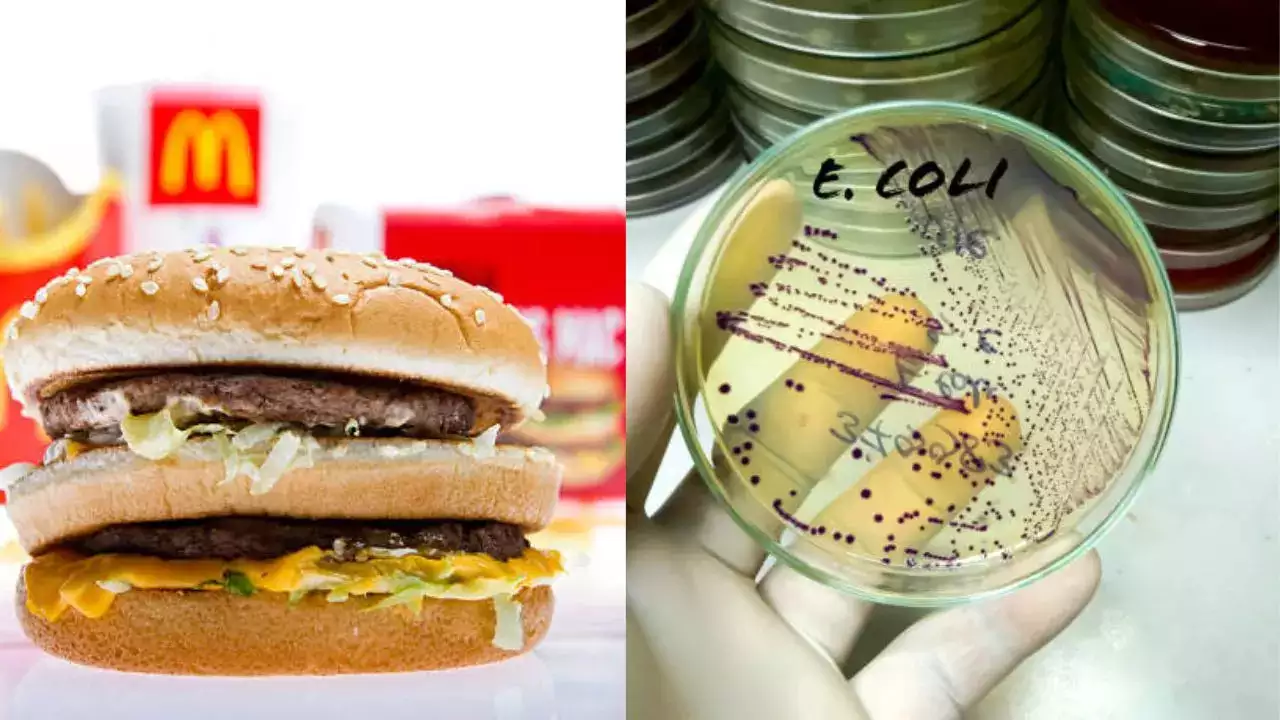
Colorado Springs facility was supplying slivered onions to McDonald's restaurants across a broad swath of states
The United States Food and Drug Administration turned up many violations at McDonald’s supplier linked to a deadly outbreak of E. coli that caused a massive spread of infections and a sweeping recall of onions used in the fast-food chain's products, including its Quarter Pounder burgers.
According to the FDA officials, many violations were seen during an inspection of a food production facility in Colorado, prompting the authority to issue the McDonald's supplier a Form 483 - list of citations over conditions inspectors worried could be "injurious to health." That facility was supplying slivered onions to McDonald's restaurants across a broad swath of states. Taylor Farms also produces a number of other products, including salads it sells in grocery stores as safe and ready to eat.
In a statement, McDonalds said it had stopped sourcing from Taylor Farms’s Colorado facility. "We hold our suppliers to the highest standards of food safety. Prior to this inspection, and unrelated to its findings, McDonald's stopped sourcing from Taylor Farms' Colorado Springs facility."
Following the E. coli outbreak in October last year, McDonald had made it clear it would not be buying onions "indefinitely," switching suppliers for some 900 restaurants that had relied on the plant. The outbreak led to more than 100 cases of E. coli infections, according to the Centers for Disease Control and Prevention, including 34 hospitalisations and one death.
No proper cleaning at the facility
According to the FDA officials, they discovered various equipment with apparent biofilm and large amounts of food debris around the Taylor Farms, even after workers had completed their required cleaning procedures.
The FDA said that Taylor Farms quality control officials had signed off on cleaning at the facility as passing, even when agency inspectors said they could still see "several food contact surfaces that were not visually clean and should have been marked as a 'Fail'."
According to the worried FDA officials, food debris building up on the company's equipment was so bad that it was leading to cross-contamination. Among other issues, the FDA also found that workers were cutting corners on required sanitation steps and used hand sanitiser only so when handling food that was supposed to be ready-to-eat or "RTE," as the industry calls it, on their gloved hands.
"Production employees handling RTE produce and food contact surfaces were not observed using any of the handwashing sinks in the facility," the FDA's inspectors wrote. "Equipment is constantly wet due to the wet processing environment and cold temperatures," agency inspectors added in their report.
What is an E. coli infection?
Escherichia coli or E. coli is a group of bacteria that normally lives in the guts of healthy people and animals. The type that lives in your GI tract usually does not hurt you—it even helps you digest your food. But under certain circumstances, many strains of the bacteria can make you extremely sick.
Many of the strains that cause infection can adhere to your cells and release toxins.
There are harmful strains of E. coli that cause watery diarrhoea, stomach pain, and other digestive symptoms if you accidentally ingest them. Many strains of E. coli cause mild infections, while some, like those that produce Shiga toxin, can cause serious illness, including kidney damage. Statistics say there are about 265,000 Shiga toxin-producing E. coli infections each year in the US.
Signs and symptoms of E. coli infections
A few signs and symptoms of E. coli gastroenteritis include:
- Diarrhoea – watery and bloody
- Stomach pains and cramps
- Loss of appetite
- Low fever
Watery diarrhoea is usually the first symptom of an E. coli infection in your GI tract. You can also have different symptoms depending on where in your body you are infected.
Get Latest News Live on Times Now along with Breaking News and Top Headlines from Health and around the world.
